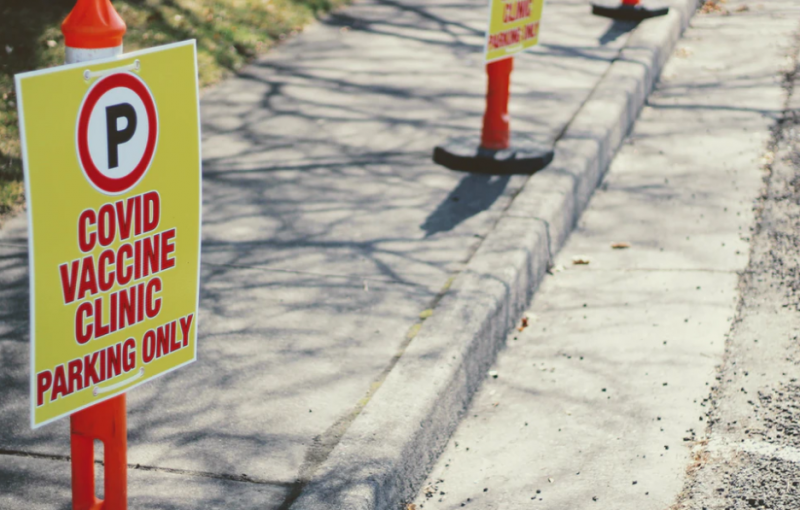
Five-year-olds aren’t the only ones scared of shots: Vaccine Hesitancy research
by Future Historian April 16, 2021With the recent pause in administering the Johnson & Johnson vaccine due to concerns about blood clotting, there’s a renewed interest in vaccine hesitancy. This refers to the psychological barriers that prevent someone from receiving a vaccine. Is the public going to be more reluctant to get COVID vaccines because of emergent safety concerns, however unlikely they might be?
A full breakdown of vaccine hesitancy drivers is well outside my own expertise. Further, any discussion of public health initiatives also has to address the social-historical context whereby specific populations (African-Americans here in the US) have a well-founded mistrust of governmental interventions.
But, PubTrawlr was built for exploring the broad trends, so let’s fire it up and check out the research into vaccine hesitancy.
PubTrawlr’s premium search pulled back 1117 articles, dating back to 2011. Unsurprisingly, the bulk of the research has occurred in the last two years.
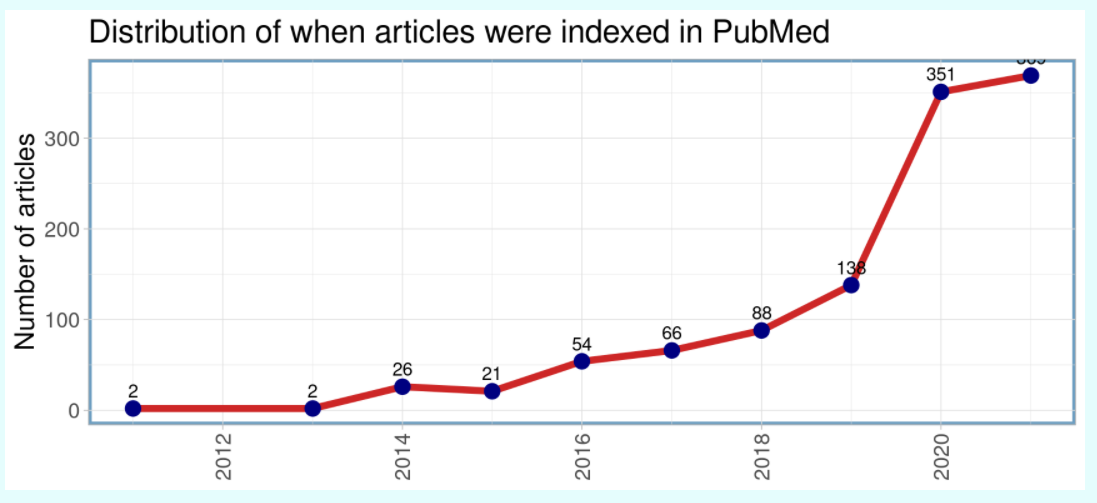
From the word cloud, it’s pretty clear that COVID-19 has been the major driver of this research. And why not: it’s only the biggest public health crisis in a generation, maybe a century.
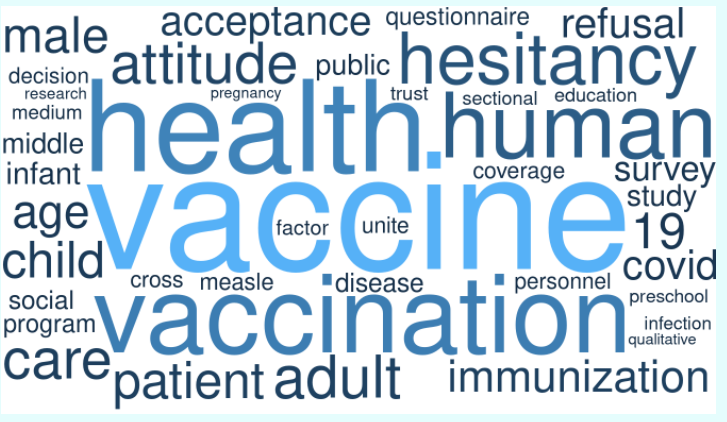
Yet here in the network plot, we also see research into the HPV vaccine, which was a major area of research for one of my past colleagues, Heather Brandt. I also want to flag the “social media” connection, which likely points to research on how misinformation spreads online.
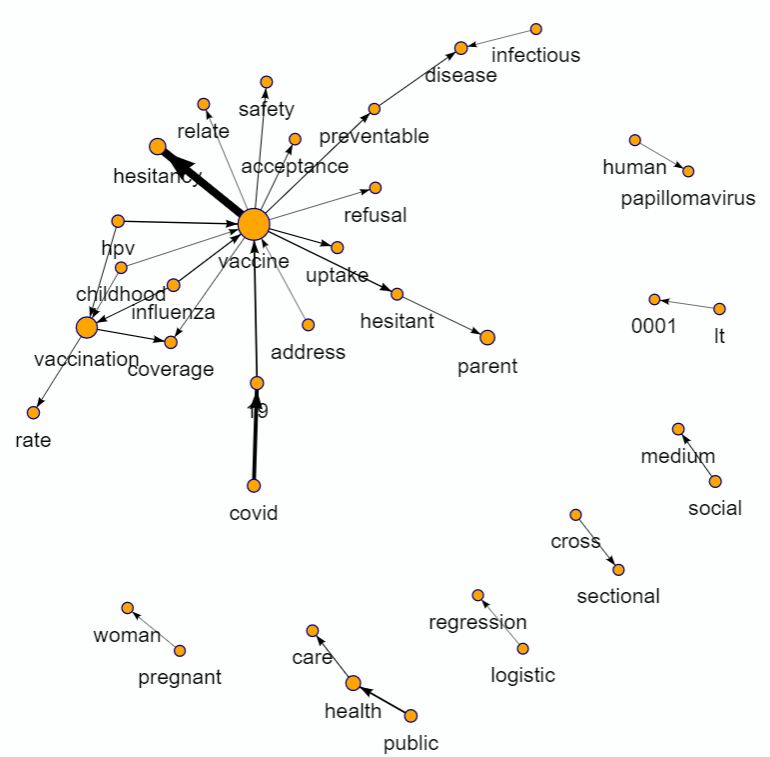
The most frequently occurring topics, though, are about COVID-19 and the communication strategies that either contribute to that hesitancy or that can address it.
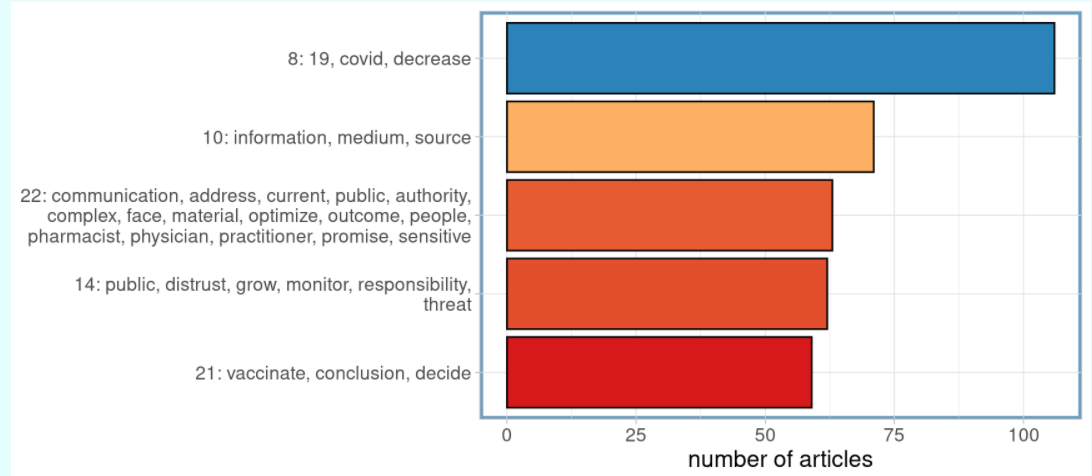
There were also 65 review articles on the topic, so that’s always a good place to start research. Review articles synthesize findings across a wide range of studies and are generally pretty comprehensive. I’ve uploaded a .pdf of that lists all these articles at the link below.
vaccine hesitancy review articles
I also flagged two topic summarizations to show that research into hesitancy before COVID might be able to inform how we roll vaccination out currently.
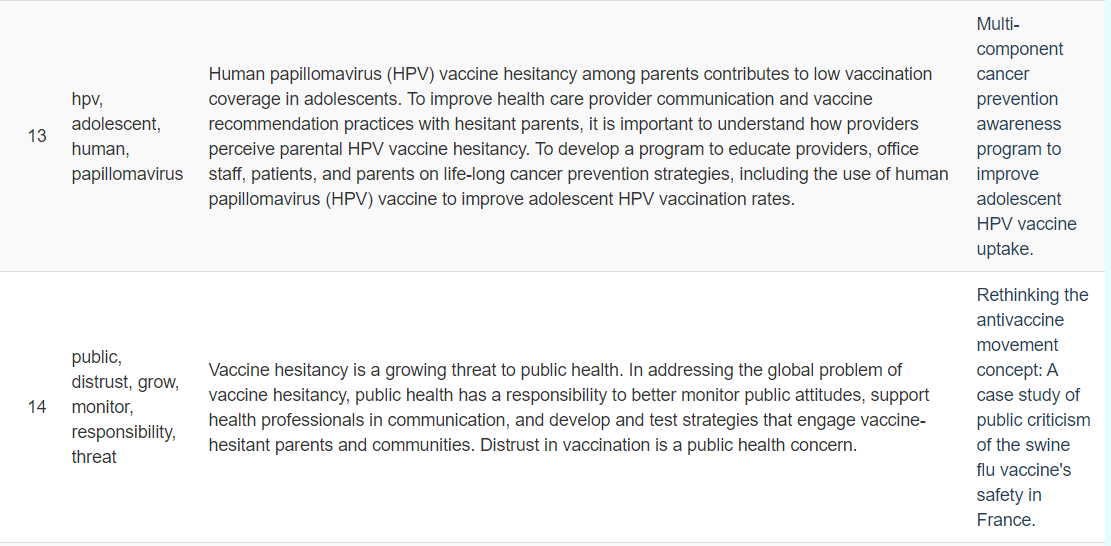
Vaccine hesitancy is likely to be a problem for the rest of 2021. As the world embarks on the largest vaccination program since polio (maybe?), we can likely expect a lot more data and studies that will influence public health policies for decades to come.
Or, maybe we’ll find out it can all be solved with a lollipop?

Leave a Reply